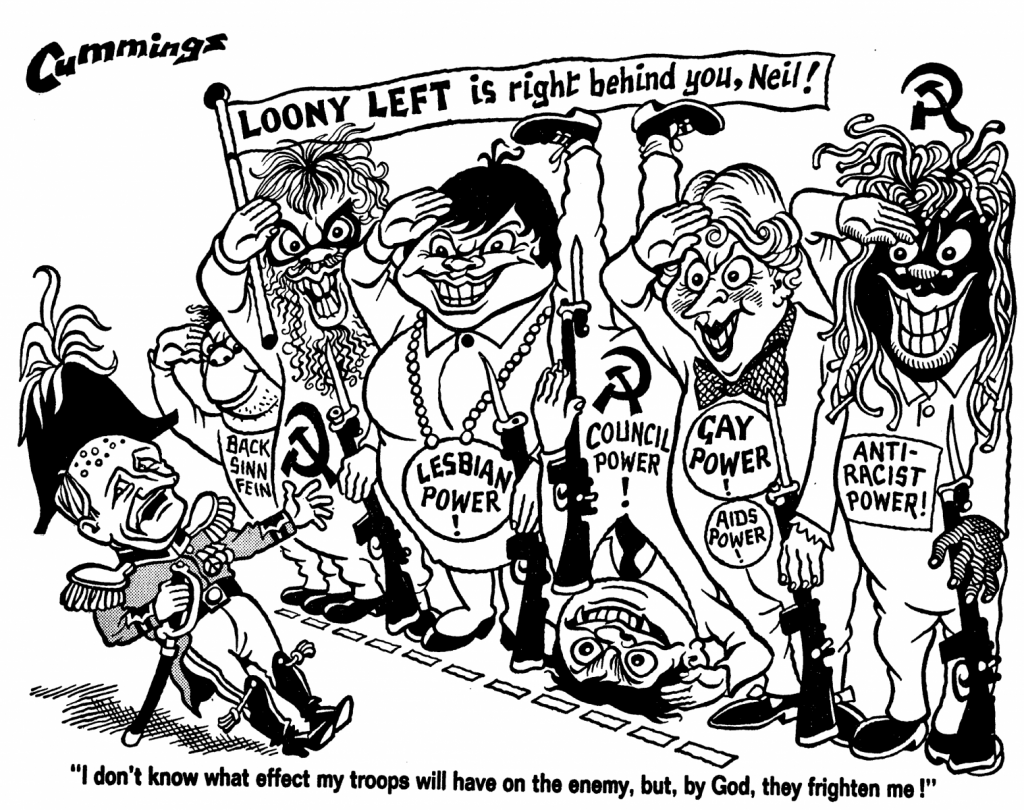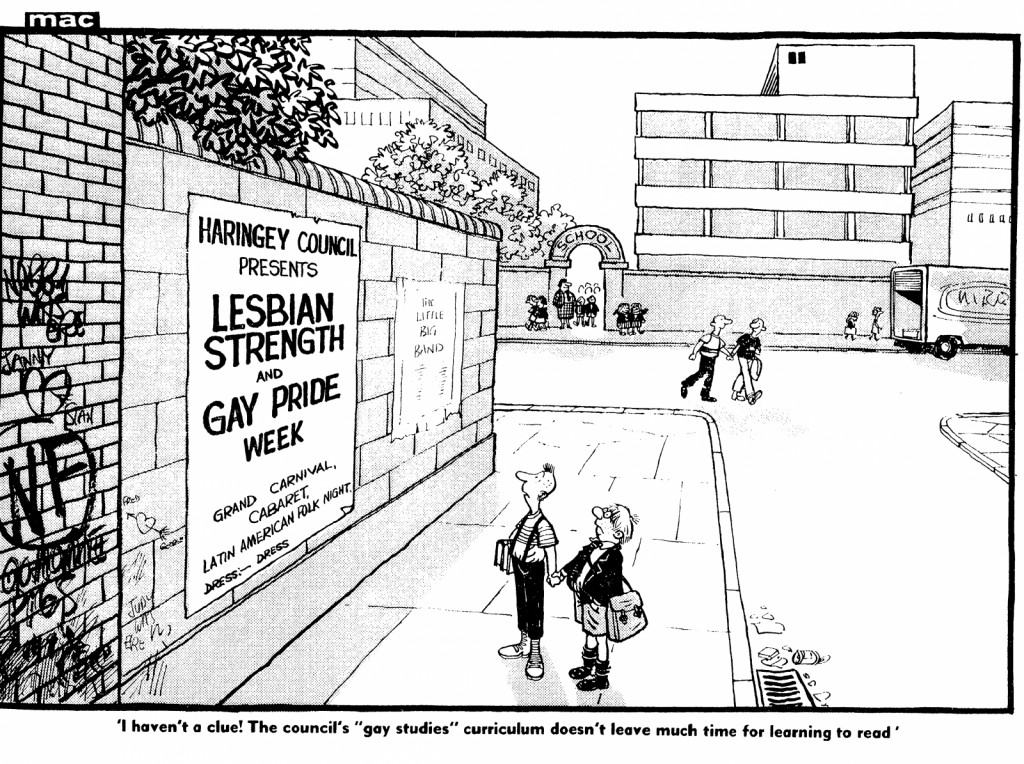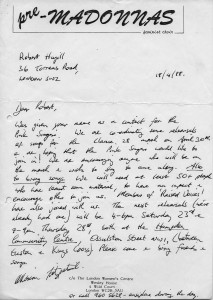Margaret Thatcher’s Conservative government introduced a few lines into the Local Government Act of 1988, which had a serious impact on LGBT people.
The clause, also known as ‘Section 28’, attempted to halt the perceived ‘promotion’ of homosexuality and made a clear distinction between valid heterosexual families and ‘pretend’ homosexual ones.
No local authority or government agency was ever successfully prosecuted under Section 28 before its repeal in 2003. Yet despite this, the fear of the legislation was enough to create a drop in funding of gay and lesbian charities and services, and to stop libraries stocking books by gay or lesbian authors or with LGBT themes.
Teachers were – and are – confused as to their remit in discussing homosexuality in schools, providing sex education and challenging homophobic bullying in the schoolyard. This is the true legacy of Section 28.
(1) A local authority shall not –
(a) intentionally promote homosexuality or publish material with the intention of promoting homosexuality;
(b) promote the teaching in any maintained school (as defined in the Act) of the acceptability of homosexuality as a pretend family relationship.
Local Government Act 1988 – Excerpt from Section 28
Protect Jenny!
Section 28 should be seen as one of a number of measures that Thatcher’s government took to curb the influence of local authorities.
Backed by right-wing groups and the press, it sought to discredit local authorities which it perceived as focusing too much on minority issues by labelling them as the ‘loony left’ and holding up examples of political correctness as evidence of how out of touch they were with the common man.
The use of the Danish children’s book Jenny lives with Eric and Martin by the Labour-controlled Inner London Education Authority was the touchpaper that ignited the debate leading to Section 28. The book dealt with some of the day-to-day issues that a child with same-sex parents might encounter.

Labour leader, Neil Kinnock, is surrounded by caricatures of his supporters – all minority figures – in the run up to the 1987 general election.

Harringey and Islington were two of the London councils particularly singled out by the tabloid press for their support of minority groups.
Singing in solidarity
Section 28 galvanised many to political action to abolish the clause and the Pink Singers were no exception to this.
The 1989 European Lesbian and Gay Festival of Song (now known as ‘Various Voices’) was held in London in solidarity due to Section 28.
It was entitled ‘Singing the Blues Away’ – a reference to the Conservative government. The Pink Singers and the Pre Madonnas (a London’s women’s choir) hosted it.


Stonewall is founded
Section 28 stepped up the professionalism of the LGBT civil rights movement.
At the closing concert of the Chorus Festival at Sadler’s Wells, Michael Cashman announced the launch of a new lobbying group – Stonewall.
Cashman, now an MEP, was an actor. In his role in EastEnders, he participated in the first gay televised kiss in 1987.
Around 20 people, including Lisa Power (the first person to address the United Nations on homosexual rights) and the actor Ian McKellen, were involved in setting up Stonewall. The group has supported those who have challenged laws in the courts and remains at the forefront of promoting equality in the workplace.
2003: repeal
Repealed in 2003, the legacy of Section 28 cast a long shadow on the LGBT community.
Its repeal in Scotland came in June 2000. Despite reform having been pledged in the 1999 Queen’s Speech, in England the House of Lords voted against repealing the legislation after bitter debate.
‘For over a decade, Section 28 has cast a cloud of confusion and ambiguity over local authorities’ ability to support and provide services to the whole of their community.’
Nick Raynsford, Local Government Minister, March 2003
In the classroom
Along with other LGBT groups, the choir has begun to engage with schools.
Students from Ravenscote School in Surrey joined us on stage in 2010 and we performed a joint concert with St George’s School, Harpenden in 2012.
This photo was taken when we filmed a video in support of ‘It Gets Better’. Aimed at young people, this campaign was started in September 2010 by American writer Dan Savage, who was moved by the stories of two gay teenagers who had committed suicide.




